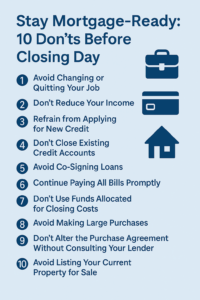GST Break for First-Time Buyers: What It Means for Homeowners in Coquitlam, the Lower Mainland, and Beyond
On May 27, 2025, the federal government announced a major tax incentive aimed at first-time home buyers: a new GST rebate on newly built homes. For buyers in high-cost areas like Metro Vancouver and the Fraser Valley, this is a significant opportunity to save thousands of dollars and improve affordability.
What’s the Deal?
First-time buyers in Canada can now receive up to $50,000 in GST relief when purchasing a newly built home priced under $1 million. For homes between $1 million and $1.5 million, the rebate is gradually reduced. Homes priced at or above $1.5 million are ineligible.
This new policy could be a game-changer in areas like Coquitlam, Burnaby, Surrey, and Port Moody where many pre-construction townhomes and condos fall within this range.
Who Qualifies?
To be eligible for this GST rebate, you must:
- Be at least 18 years old
- Be a Canadian citizen or permanent resident
- Not have owned (or lived in a home owned by your spouse/partner) in the last 4 calendar years
- Use the home as your primary residence
- Be the first person to occupy the home
What Types of Homes Are Covered?
This GST rebate applies to:
- Newly constructed homes purchased from a builder, where the purchase agreement is signed on or after May 27, 2025
- Owner-built homes where construction starts on or after May 27, 2025
- New cooperative housing units under similar timelines
Note: Construction must begin before 2031 and be substantially completed by 2036.
Important Limitations
- The rebate can only be claimed once per individual
- If your spouse or partner has already claimed a first-time GST rebate, you cannot
- You cannot backdate by canceling and re-signing a contract signed before May 27, 2025
Why This Matters in BC
For first-time buyers in BC, especially those targeting pre-sale opportunities or new construction homes, this rebate could free up a significant portion of your closing budget. Whether used toward your down payment, legal fees, or moving costs, it’s money that stays in your pocket.
Let’s Talk About What This Means for You
Wondering how this affects your mortgage pre-approval or down payment strategy? I’d love to walk you through it and help you take advantage of this program.
This policy is expected to deliver nearly $4 billion in tax savings over the next five years. Don’t miss your chance to benefit.

